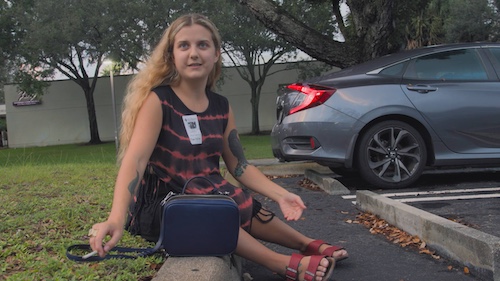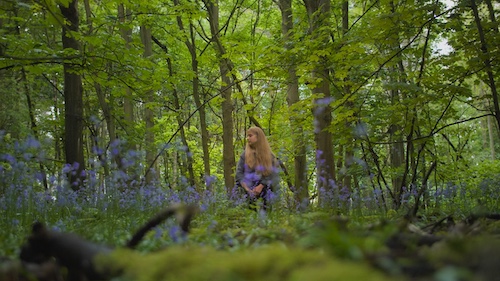Communiqué
Filmmaker wonders if there is anyone who can share the experience of living in a body like hers, “Is There Anybody Out There?” on POV – July 8 at 10 pm
< < Back to filmmaker-wonders-if-there-is-anyone-who-can-share-the-experience-of-living-in-a-body-like-hers-is-there-anybody-out-there-on-pov-july-8-at-10-pm‘POV’ Follows Director’s Journey of Self Discovery and the Power of the Disability Community in
“Is There Anybody Out There?”
Monday, July 8 at 10:00 pm
Following its award winning festival run, Is There Anybody Out There? directed by emerging filmmaker Ella Glendining and produced by Janine Marmot (Bodysong), will make its national broadcast premiere on POV Monday, July 8, 2024 and will be available to stream until August 7, 2024 at pbs.org, and the PBS App. The documentary trails Glendining as she embarks on a global quest to find someone with a body that looks like hers, and explores what it takes to love yourself fiercely as a disabled person in a non-disabled world. In addition to standard closed captioning for the film, POV, in partnership with audio description serviceDiCapta, provides real time audio interpretations for audiences with sensory disabilities.

Is There Anybody Out There? is a deeply personal, first-person look at living with a rare disability and the search for kinship within a global community. Born without hip joints and short thigh bones, Glendining chronicles her journey of alienation and disabled pride from a political and powerfully intimate perspective. The film also explores the experience of being a disabled pregnant woman as well as the emotional process of becoming a mother, when she finds herself unexpectedly pregnant. More than anything, this story is about ableism and the power of community – about living in a world where you’re seen as less than human – and what it takes to love yourself fiercely despite this.
Director Ella Glendining said: “I can hardly begin to express how thrilled I am that Is There Anybody Out There? is going to be available for US audiences. What an honor to have this film find its American home with POV, alongside many of my favorite documentaries of all time, and as a huge part of the story takes place in America, this release feels extra special.

“Is There Anybody Out There? is my story, but it is also my battle cry for the disability community; the community I love and that has given me the strength to bare my soul. Since the film’s conception, I have dreamt of it being seen by as many people as possible, but initially I had no idea of where my search would take me. Many unexpected eventualities occurred during the making of this film that have shaped it in a unique and wild way. I worked with the most amazing collaborators and learnt so much about filmmaking, myself and my community, and the profound power of disabled kinship. My hope is that this film will open the audience’s eyes and help to reframe the way disability is seen and understood, and how disabled people are valued in society; that it will shine a light on the ableism that permeates culture and impacts us all. I want this film to be a beacon of light for the disability community and people who have been made to feel ‘other’. Is There Anybody Out There? has changed me forever, and I hope it will continue to change and inspire others too, bringing profound joy, pride, and power.”
Chris White, Executive Producer, POV said: “We are proud and excited to share Ella Glendining’s deeply affecting film with PBS audiences. Her unique approach is eye-opening and richly rewarding in its clarity of vision. With fascinating insight, she effortlessly weaves her personal life through a social and medical backdrop predominated by ableist attitudes and discrimination. Ella’s film joins other powerful works on POV exemplifying the diversity and authenticity of stories we want our viewers to experience.”

